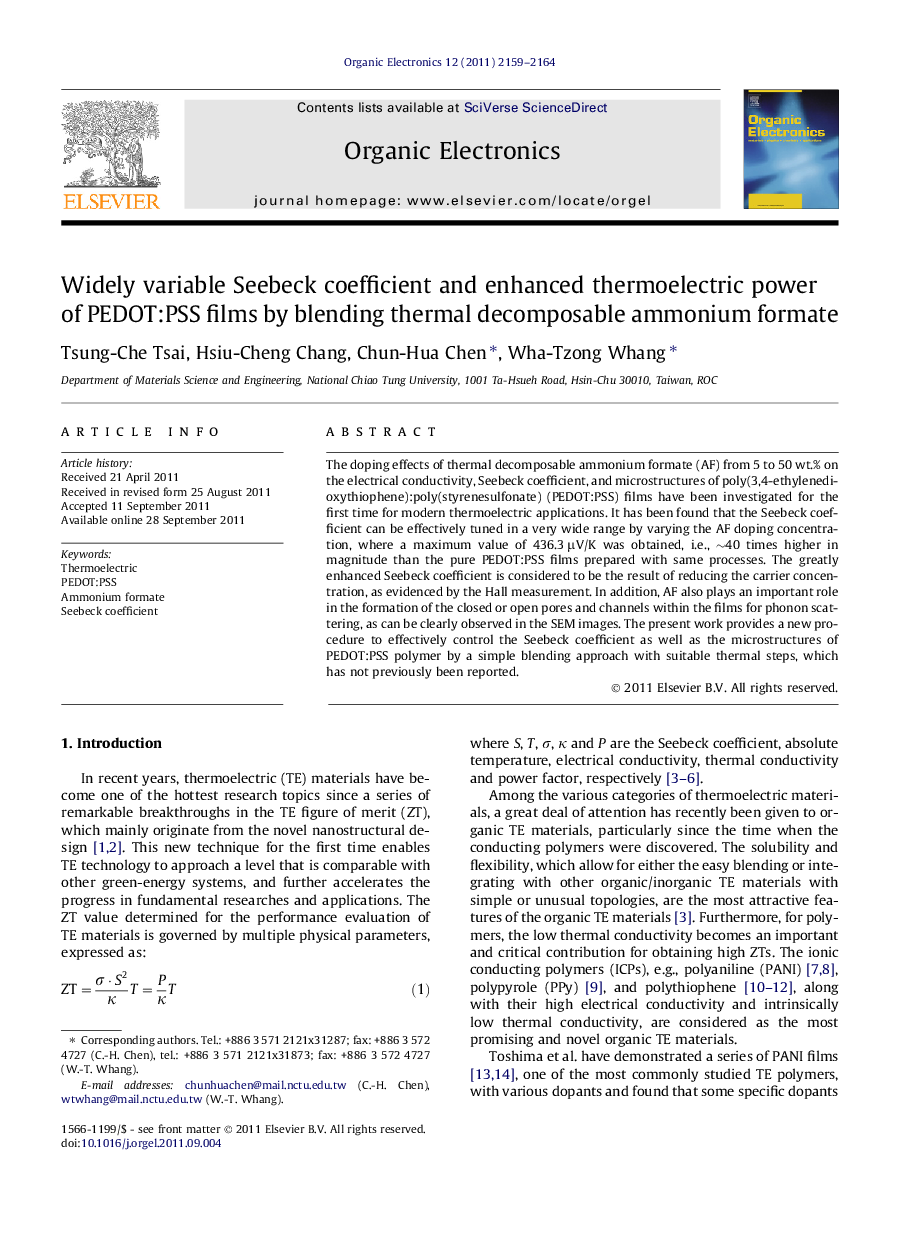| Article ID | Journal | Published Year | Pages | File Type |
|---|---|---|---|---|
| 1267576 | Organic Electronics | 2011 | 6 Pages |
The doping effects of thermal decomposable ammonium formate (AF) from 5 to 50 wt.% on the electrical conductivity, Seebeck coefficient, and microstructures of poly(3,4-ethylenedioxythiophene):poly(styrenesulfonate) (PEDOT:PSS) films have been investigated for the first time for modern thermoelectric applications. It has been found that the Seebeck coefficient can be effectively tuned in a very wide range by varying the AF doping concentration, where a maximum value of 436.3 μV/K was obtained, i.e., ∼40 times higher in magnitude than the pure PEDOT:PSS films prepared with same processes. The greatly enhanced Seebeck coefficient is considered to be the result of reducing the carrier concentration, as evidenced by the Hall measurement. In addition, AF also plays an important role in the formation of the closed or open pores and channels within the films for phonon scattering, as can be clearly observed in the SEM images. The present work provides a new procedure to effectively control the Seebeck coefficient as well as the microstructures of PEDOT:PSS polymer by a simple blending approach with suitable thermal steps, which has not previously been reported.
Graphical abstractFigure optionsDownload full-size imageDownload as PowerPoint slideHighlights► Ammonium formate (AF) was first time utilized as a dopant for PEDOT:PSS films. ► The Seebeck coefficient sensitively varies with AF concentration over a wide range. ► The Seebeck coefficient and power factor were enhanced up to 40 times by AF doping.
